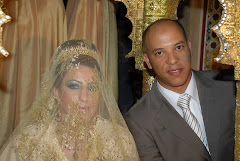Do all students have a capacity to learn?
I believe that “all students can learn but not all at the same day, the same way” I have read this somewhere but can’t remember who said it. I believe strongly in that statement and think that all the students including the special needs students have an equal chance to learn and comprehend the material. I also believe that the teachers are facilitators; they should design lessons, and come up with lessons that suit the learning styles of their students. Each lesson should touch down on the multiple intelligences to better reach out to all kinds of learners.
What shapes this capacity?
There are so many factors that contribute to shaping the students’ learning capacity. To me it all starts at home, before the teachers’ contribution comes in the situation at home is very essential, whether the student lives with his family or in a foster home, whether the one parent with whom he/she spent the week end remembered to help with homework or signed the “fieldtrip” slip, or whether someone makes sure that the student gets enough sleep and have breakfast before coming to school., and whether the student took his or her medication before leaving home. Then comes the skilful teacher who fosters a safe and encouraging learning environment, a teacher who can engage and challenge the students, a teacher who plans lessons lesson with his students in mind, a teachers who makes the students feel that he cares about them individually. It is so funny that while I am writing this the “are you smarter that a fifth grader” sho came on and I am looking at these kids and wondering about what makes them so special that they are entertaining millions of people? What was offered accessible to them and not to my students in my title one school?
How much influence do you have upon this capacity?
As far as dealing with the home problem I can’t really do much about it. Nut I do what I can in easing some of those problems by being understanding and supportive. From my position as world language I am trying to positively impact their learning capacity and improve their performance and provide them with language tools that will allow to become world citizens, and think of themselves as part of a global community of learners. I also try to challenge my students by designing units that promote higher thinking questions. But I am limited because of the nature of the subject. I also try to reinforce what students are learning in their first language using their second language, by working with a content based language neutral framework
How do these assumptions about learning shape our instruction?
Well I don’t have the magic stick to turn a low achieving student to a genius, I know that I can touch and change their lives with what knowledge I can offer them and more importantly is how I offer it to them, and how I help them use what they have learned. Loading students with meaningless information or dictating the learning instead of facilitating it will only serve the testing purpose, and by the following year they will remember little none of it.
My Domain:
I am picking the first domain: Planning and preparation
I am adding this video to say that every one can learn/trained

